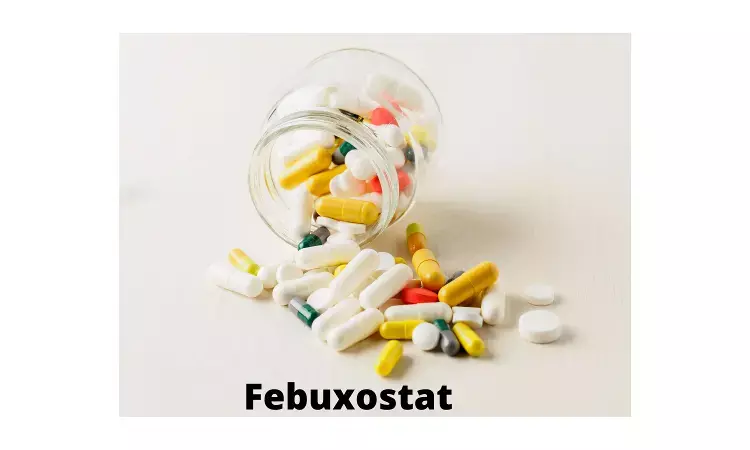- Home
- Medical news & Guidelines
- Anesthesiology
- Cardiology and CTVS
- Critical Care
- Dentistry
- Dermatology
- Diabetes and Endocrinology
- ENT
- Gastroenterology
- Medicine
- Nephrology
- Neurology
- Obstretics-Gynaecology
- Oncology
- Ophthalmology
- Orthopaedics
- Pediatrics-Neonatology
- Psychiatry
- Pulmonology
- Radiology
- Surgery
- Urology
- Laboratory Medicine
- Diet
- Nursing
- Paramedical
- Physiotherapy
- Health news
- Fact Check
- Bone Health Fact Check
- Brain Health Fact Check
- Cancer Related Fact Check
- Child Care Fact Check
- Dental and oral health fact check
- Diabetes and metabolic health fact check
- Diet and Nutrition Fact Check
- Eye and ENT Care Fact Check
- Fitness fact check
- Gut health fact check
- Heart health fact check
- Kidney health fact check
- Medical education fact check
- Men's health fact check
- Respiratory fact check
- Skin and hair care fact check
- Vaccine and Immunization fact check
- Women's health fact check
- AYUSH
- State News
- Andaman and Nicobar Islands
- Andhra Pradesh
- Arunachal Pradesh
- Assam
- Bihar
- Chandigarh
- Chattisgarh
- Dadra and Nagar Haveli
- Daman and Diu
- Delhi
- Goa
- Gujarat
- Haryana
- Himachal Pradesh
- Jammu & Kashmir
- Jharkhand
- Karnataka
- Kerala
- Ladakh
- Lakshadweep
- Madhya Pradesh
- Maharashtra
- Manipur
- Meghalaya
- Mizoram
- Nagaland
- Odisha
- Puducherry
- Punjab
- Rajasthan
- Sikkim
- Tamil Nadu
- Telangana
- Tripura
- Uttar Pradesh
- Uttrakhand
- West Bengal
- Medical Education
- Industry
Urate lowering agents don't slow progression of CKD in hyperuricemia, finds study

Hyperuricemia is very common in CKD patients because of reduced urinary excretion of uric acid. The role of uric acid in the development CKD and whether urate-lowering therapy (ULT) is warranted for its treatment are controversial issues.
A new study by Xiang Liu, and team reported that febuxostat showed a tendency to be superior to allopurinol on lowering the decline of eGFR and increment of proteinturia, but showed lesser statistical significance. This study is published in Frontiers in Pharmacology.
The objective of the study was to summarize and compare the clinical outcomes and adverse events (AEs) of three common ULT drugs, we performed a systematic review and network meta-analysis of randomized clinical trials (RCTs).
The study used online platforms like PubMed, MEDLINE, Clinical Trials.gov, EMBASE, and the Cochrane Central Register of Controlled Trials electronic databases. The network meta-analysis was performed using the "gemtc 0.8-7" and its dependent packages in R software. The primary outcome was the change of renal function and uric acid; creatinine, proteinuria, blood pressure, and adverse events were assessed as the secondary outcomes.
The results of the study were found to be
• Out of 16 RCTs involving 1,943 patients were included in the final network analysis. Febuxostat, allopurinol, and benzbromarone were not found to exert superior effects over placebo upon renoprotective effect.
• With respect to lowering urate, the three drugs showed to be statistically superior to placebo, while febuxostat could better lower urate than allopurinol (MD: −1.547; 95% CrI: −2.473 to −0.626).
• It is also indicated that febuxostat was superior to placebo at controlling blood pressure, while no differences were observed when allopurinol and benzbromarone were compared to placebo. These results are stable in subgroup analysis.
Liu and team concluded that "There is insufficient evidence to support the renoprotective effects of the three urate-lowering agents in CKD patients with hyperuricemia; febuxostat shows a tendency to be superior to allopurinol on lowering the decline of eGFR and increment of proteinturia, but the difference does not reach a statistical significance. Regarding its urate-lowering effect, febuxostat appears to be a satisfactory alternative to allopurinol and benzbromarone, and can control blood pressure better."
For further information: Liu X, Qiu Y, Li D, Tan J, Liang X and Qin W. Effectiveness of drug treatments for lowering uric acid on renal function in patients with chronic kidney disease and hyperuricemia: a network meta-analysis of randomized controlled trials. Front. Pharmacol. 12:690557. https://doi.org/10.3389/fphar.2021.690557
Medical Dialogues consists of a team of passionate medical/scientific writers, led by doctors and healthcare researchers. Our team efforts to bring you updated and timely news about the important happenings of the medical and healthcare sector. Our editorial team can be reached at editorial@medicaldialogues.in.
Dr Kamal Kant Kohli-MBBS, DTCD- a chest specialist with more than 30 years of practice and a flair for writing clinical articles, Dr Kamal Kant Kohli joined Medical Dialogues as a Chief Editor of Medical News. Besides writing articles, as an editor, he proofreads and verifies all the medical content published on Medical Dialogues including those coming from journals, studies,medical conferences,guidelines etc. Email: drkohli@medicaldialogues.in. Contact no. 011-43720751


